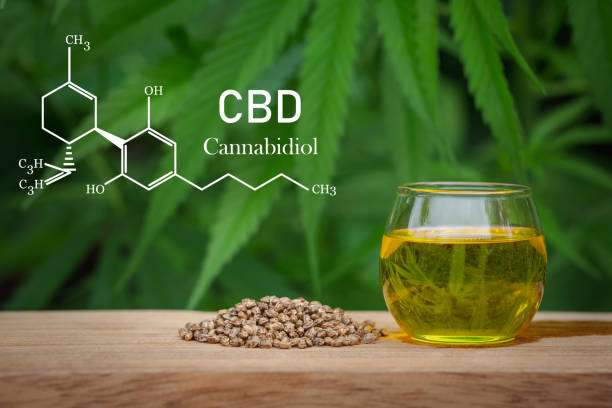CBD is a burgeoning industry with a lot of potential. However, it is also an industry that is fraught with a lot of misinformation and confusion. In order to help the CBD industry thrive, it is important to have clarity and standards. This will help to ensure that consumers know what they are buying, and that they are getting a product that is safe and effective. It will also help to build trust in the industry, and to ensure that businesses can operate smoothly.
The positive power of CBD
The cannabidiol (CBD) industry is growing rapidly. In 2018, the global CBD market was valued at $367 million and is expected to reach $1.6 billion by 2023, according to Brightfield Group.
With the increasing popularity of CBD, it’s important to ensure that products are safe, effective, and accurately labeled. Unfortunately, the CBD industry is currently unregulated, which means that there is no one overseeing these important aspects.
However, there are things that consumers can do to make sure they are getting quality CBD products. Here are a few tips:
1. Look for products that are third-party tested.
When a product is third-party tested, it means that an independent laboratory has analyzed it to ensure that it contains the amount of CBD that is claimed on the label. This is important because it ensures that the product is effective and safe.
2. Make sure the product is organic.
CBD products should be made with organic, non-GMO hemp. Hemp is a type of cannabis plant, and while it does contain small amounts of THC, this is not the compound that gets people high.
3. Avoid products with artificial ingredients.
CBD products should not contain any artificial ingredients, such as artificial flavors or colors. These ingredients can be harmful to your health and may make the product less effective.
4. Check the serving size.
When you’re looking at CBD products, make sure to check the serving size. This will tell you how much CBD you’re actually getting in each serving.
5. Choose a reputable brand.
There are many different CBD brands on the market, so it’s important to choose one that is reputable and has a good track record. You can read online reviews or ask friends and family for recommendations.
By following these tips, you can be sure that you’re getting a quality CBD product that is safe and effective. This is important for your health and well-being.
Is a lack of regulation hindering the CBD industry
The CBD industry is still in its infancy, and many companies are still trying to figure out how to navigate the legal landscape. In the United States, the Farm Bill legalized the production and sale of hemp and hemp-derived products, including CBD. However, the FDA has not yet issued any regulations specifically for CBD products. This lack of clarity has led to a Wild West environment, where companies are free to make claims about their products with little to no oversight.
This lack of regulation has been hindering the CBD industry in several ways. First, it has made it difficult for consumers to know what they are actually buying. With no standards in place, companies can put anything they want into their products and call it CBD. This makes it hard for consumers to know if they are getting a quality product or not. Second, the lack of regulation has made it difficult for researchers to study CBD. Because there is no way to know what is in a CBD product, it is hard to design studies that would be able to tease out the effects of CBD from other potential ingredients.
The good news is that the FDA has started to take steps towards regulating the CBD industry. In December 2018, the FDA held a public hearing to get input from stakeholders about the best way to regulate CBD products. And in July 2019, the FDA released draft guidance for industry on how to market CBD products legally. This is a positive step in the right direction, but there is still a long way to go.
In the meantime, companies should self-regulate to ensure that they are providing quality products to consumers. This includes third-party testing of their products and clearly labeling their products with accurate ingredient lists. Consumers should also be aware that the lack of regulation means that they should be doing their own research before purchasing any CBD product.
Do you think that the lack of regulation is hindering the CBD industry? Let us know in the comments below!
Transforming CBD biomass
CBD oil is extracted from the hemp plant and contains less than 0.3% THC. It is a non-psychoactive compound that has many potential health benefits. CBD oil is legal in most states, but it must be derived from hemp rather than marijuana.
The CBD industry is growing rapidly, and it is expected to be worth $22 billion by 2022. However, the industry is still unregulated, and there is a lack of clarity and standards. This can make it difficult for consumers to know what they are buying, and it can also make it difficult for manufacturers to produce consistent products.
One way to improve the CBD industry is to establish clarity and standards. This would help to ensure that consumers know what they are buying, and it would also help to ensure that manufacturers are producing consistent products.
There are many different ways to extract CBD oil from the hemp plant. The most common methods are supercritical CO2 extraction, solvent extraction, and olive oil extraction.
Supercritical CO2 extraction is the most expensive and most efficient method. It involves using high-pressure CO2 to extract CBD oil from the plant material. This method is considered to be the best because it preserves the most terpenes and cannabinoids.
Solvent extraction is the most common method used to extract CBD oil. It involves using a solvent, such as ethanol, to extract CBD oil from the plant material. This method is less expensive than supercritical CO2 extraction, but it is also less efficient.
Olive oil extraction is the least expensive and least efficient method. It involves using olive oil to extract CBD oil from the plant material. This method is not as effective as the other two methods, but it is simpler and it does not require any special equipment.
The CBD industry is still in its early stages, and there is a lot of room for improvement. Establishing clarity and standards would be a major step in the right direction.
Treating opioid addiction with CBD
CBD oil is gaining popularity as a natural treatment for many common ailments, including anxiety, pain, inflammation, and sleep disorders. CBD oil is also being studied as a potential treatment for opioid addiction. Early research suggests that CBD oil may help reduce cravings and withdrawal symptoms in people who are trying to quit opioids.
CBD oil is derived from cannabis plants, but it does not produce the psychoactive effects that THC (tetrahydrocannabinol) does. CBD oil is legal in many states, and it is available without a prescription.
CBD has been shown to reduce inflammation and pain in a variety of studies. One study found that CBD was effective in reducing pain and inflammation in rats with arthritis. Another study found that CBD oil was effective in reducing nerve pain and inflammation in rats with sciatica.
CBD oil has also been shown to be effective in reducing anxiety in people with social anxiety disorder. In one study, participants were given either CBD oil or a placebo before they gave a public speech. Those who received CBD oil had significantly less anxiety and discomfort during their speech than those who received the placebo.
CBD oil is also being studied as a potential treatment for opioid addiction. Early research suggests that CBD oil may help reduce cravings and withdrawal symptoms in people who are trying to quit opioids.
CBD oil is a promising treatment for many common ailments, and it is also being studied as a potential treatment for opioid addiction. If you are considering using CBD oil, be sure to talk to your healthcare provider to make sure it is right for you.
Remove barriers in the CBD industry
The CBD industry is still in its infancy, and there are many barriers to entry that need to be removed in order for it to thrive. One of the biggest barriers is the lack of clarity and standards.
The CBD industry is currently unregulated, which means that there is no standardization of products. This lack of standards means that it can be very difficult for consumers to know what they are buying, and it also makes it difficult for businesses to operate in the CBD space.
This lack of clarity and standards is one of the biggest barriers to entry in the CBD industry. If we want the CBD industry to thrive, we need to remove this barrier.
One way to do this is to create a set of clear and concise standards for CBD products. These standards would cover everything from labeling and packaging to product quality and safety. By having these standards in place, businesses would know what is expected of them, and consumers would know what they are buying.
Another way to remove barriers in the CBD industry is to provide more education to both businesses and consumers. Many people are still unaware of the potential benefits of CBD, and so they are not interested in buying CBD products. By providing more education on the topic, we can increase interest and demand for CBD products.
If we want the CBD industry to thrive, we need to remove the barriers that are currently preventing it from growing. By creating clear standards and providing more education, we can create a thriving CBD industry that benefits everyone.





